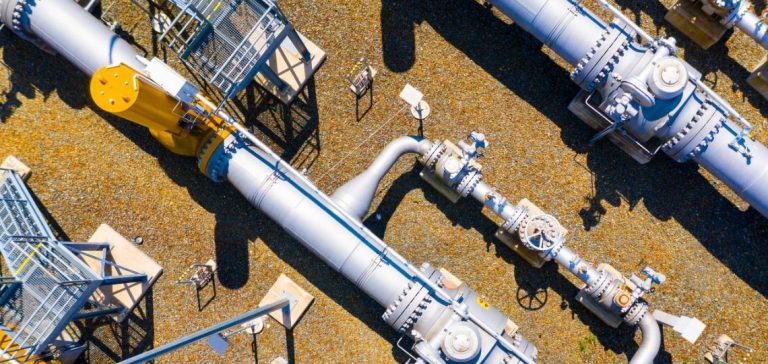Moscow has stated that it will not engage in discussions with Baku regarding the replacement of Russian gas transit with Azerbaijani gas to Europe. This decision comes as Ukraine plans to cease the transit of Russian gas starting January 2025, in accordance with the end of the current contract.
In late August, Ukrainian President Volodymyr Zelensky announced the cessation of Russian gas transit via Ukraine, a decision that has major repercussions for the energy supply of several European countries. Azerbaijan, as a major natural gas producer and energy partner of the European Union (EU), has been approached by Brussels and Kiev to facilitate discussions aimed at establishing a new agreement.
Are Negotiations Progressing?
According to Ilham Aliev, President of Azerbaijan, discussions were being considered to use Russian infrastructure to transport Azerbaijani gas to the Ukrainian network. Aliev had expressed some optimism in early September, stating that he was in contact with Moscow and Kiev to explore this possibility.
However, Russian Deputy Prime Minister in charge of Energy, Alexandre Novak, denied any discussions on this subject. He clarified that “this is not a topic of discussion” and added that the gas transit infrastructure was not intended for such use. Novak also indicated that the responsibility to find a solution lies with the purchasing partners, primarily his Ukrainian colleagues.
Impact on European Countries
Kiev’s decision not to renew the gas transit contract with Moscow creates uncertainty for many European countries dependent on Russian gas. Slovakia, Hungary, Austria, and Italy are among the main beneficiaries of the current transit, although volumes have fallen by nearly two-thirds since 2021, reaching 14.65 billion cubic meters in 2023, according to official data.
In response to the Russian offensive against Ukraine in February 2022, the European Union set a goal to eliminate dependence on Russian natural gas by 2027. This strategy aims to diversify energy sources and strengthen the EU’s energy security.
Economic Consequences for Russia
Russian President Vladimir Putin expressed his disappointment with the Ukrainian decision, acknowledging that it will lead to financial losses for Russia. The cessation of Russian gas transit through Ukraine could significantly reduce Moscow’s energy revenues, exacerbating the already existing economic tensions between Russia and Europe.
This situation forces Russia to consider new routes to transport its natural gas to Europe, while navigating an increasingly complex geopolitical context. Discussions with other energy partners, such as Norway or Kazakhstan, may also be reevaluated to mitigate the impact of this Ukrainian decision.
Prospects for Azerbaijan
For Azerbaijan, this situation represents an opportunity to strengthen its role as a key natural gas supplier to Europe. However, without Russia’s agreement, transit options remain limited. Azerbaijan will need to explore other routes or enhance its current infrastructure to meet the EU’s growing demand.
Continuous dialogue among the concerned parties will be crucial to determining the future dynamics of the European energy market and ensuring a smooth transition to alternative energy sources.






















